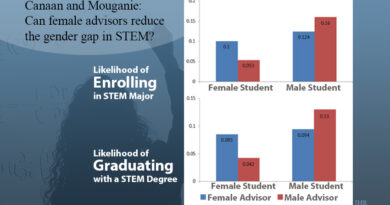More Grooms than Brides—Does Marriage Market Competition Induce More Investment in Stocks?
The value of the stock market in both developing and developed countries has experienced tremendous growth recently, which has a profound impact on the evolution of household wealth. What determines households’ allocation of wealth to risky assets and stocks in particular? Can social factors play a role? Wenchao Li, Changcheng Song, Shu Xu, and Junjian Yi find a link between household portfolio allocations and unfavorable marriage market conditions that arise from high sex ratios—more men than women.
While researchers have documented the importance of borrowing cost, wealth and labor income, and personal experience in affecting households’ stock market participation, the role played by country-specific social and cultural factors is less explored, especially for developing countries. Li, Song, Xu, and Yi examined nationally representative Chinese household data to unpack these effects in family investing.
Rising sex ratios lead to an excess supply of men in the marriage market. Therefore, a man and his family face unfavorable marriage market conditions and a large expected marriage expenditure. Families with a son expect to spend more to appear financially attractive in order to find the son a marital partner. Therefore, they invest more in risky assets for this purpose.
Within each geographical region with different sex ratios, the team compared variation in portfolio choice between families with a first-born son and families with a first-born daughter. The results show that high sex ratios render families with a son more likely to hold—and hold more—risky assets in their portfolios relative to families with a daughter. The estimate implies that rising sex ratios explain around 10 percent of the significant growth in China’s stock market value in recent decades.
Given that high sex ratios affect household participation in the financial market, there may be further implications for financial market outcomes. Moreover, the sex-ratio effect on financial investment decisions varies across households, depending on the marriage market conditions they face as well as their income levels, and this may contribute meaningfully to the evolution of wealth inequality.
Read the study in the Journal of Human Resources: “High Sex Ratios and Household Portfolio Choice in China” by Wenchao Li, Changcheng Song, Shu Xu, and Junjian Yi.
***
Wenchao Li is at the School of Business and Management, Shanghai International Studies University. Changcheng Song is at the Lee Kong Chian School of Business, Singapore Management University. Shu Xu is at the School of Economics, Southwestern University of Finance and Economics. Junjian Yi is at the Department of Economics, National University of Singapore.




